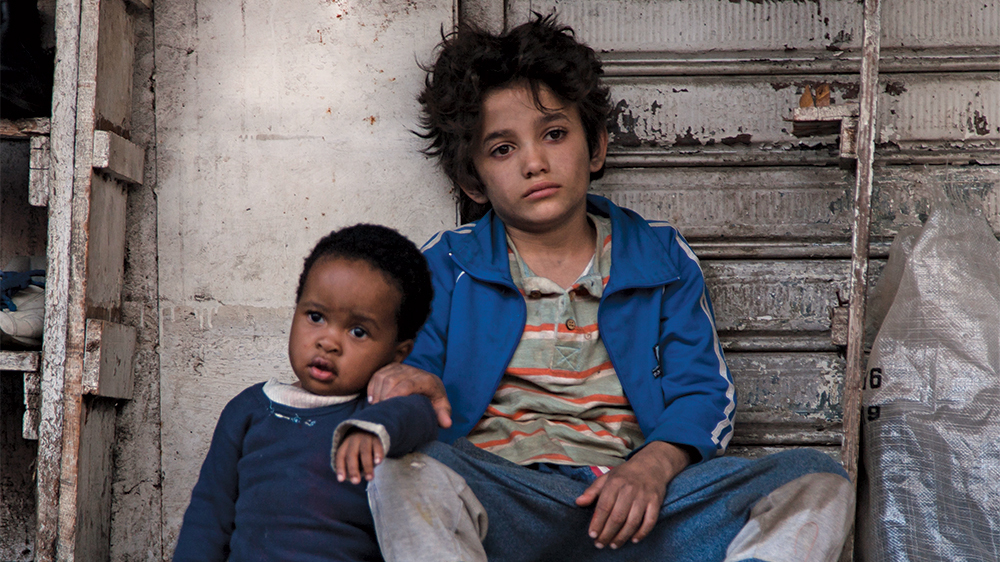Capernaum (“Chaos”, in French) is a big film for 2018/19. Winner of the Cannes Jury
Opening on the slums of Beirut, the film’s central character works the narrative in flashback format. Zain (Zain Al Rafeea) is the neglected child, suing his parents in court for bringing him into the destitute world he has to put up with. When his 11-year-old sister gets her first period and is married off, our Zain decides to abandon his life in
The film’s strengths are in its realism. Taking us through the hustle of the streets of Beirut, we are thrust into the reality of its poverty, and constraints against which Zain and his estranged family have to live by. In this, we see corruption: scenes of kids smoking, overcrowded prison cells, threadbare living conditions, etc. Constant noises flit in and out of the scene – of cars and motorcycles racing by, or people barging into shot. For our protagonist, this reflects a constant theme: life interrupted by strangers, his childhood lost.
Through the innocent eyes of Zain, we are encouraged to pause and reflect. Indeed, the actor Zain really adopts his namesake role, and amidst these cramped and chaotic conditions, the choice by director Nadine
Despite this, I did have my shortcomings about it, as in points the narrative can be cloying. I was reminded of the 2018 Cannes winner ‘Shoplifters’, a film that depicts a similar theme of a child growing up too fast in an impoverished environment. And yet, unlike ‘Shoplifters’, Capernaum fails to evoke a sense of endearment in its central character. Zain is the forlorn protagonist from the very start, which leaves us almost lacking in moments that remind us he is still a child. Lacking this contextualisation, the tragedy feels almost forced, and as
Furthermore, the contrivance of a child-trial seems a strange, almost satirical twist to this social-realism, and at times the flash-forward feels an unwanted interruption of the real drama: Zain’s frustration with the chaos of his personal life; the injustice of life in these Beirut slums. These views, however, are likely more
Image credit: Fares Sokhon / variety.com

